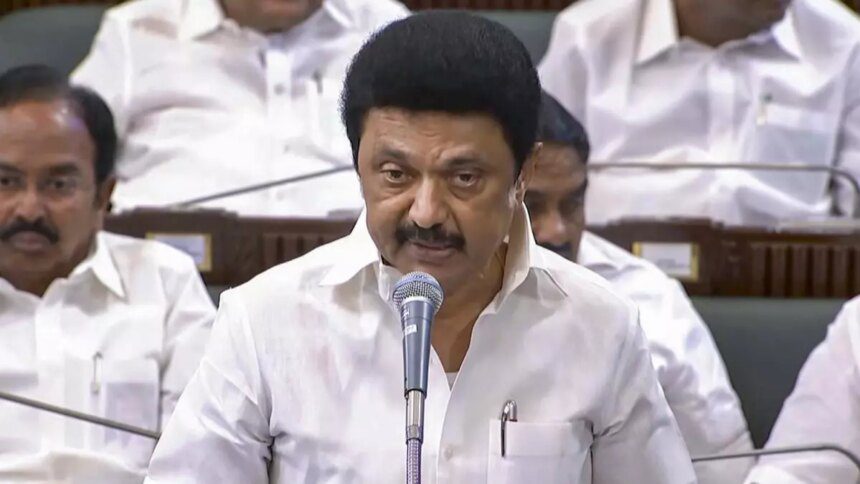The central government continues to overlook Tamil Nadu, imposing conditions that conflict with the State government’s policies for various schemes. This has led to significant challenges in the implementation of state initiatives, with many projects facing delays, Chief Minister MK Stalin stated in the Assembly on Saturday.
For instance, under the Integrated Education Mission, ₹2,152 crore is still pending from the central government. These funds are essential for paying teachers’ salaries, reimbursing schools under the Right to Education Act, maintaining school facilities, and conducting training programs for educators. Despite numerous reminders, the subsidy has yet to be released, forcing the State government to utilize its own resources to cover these expenses.
Additionally, the introduction of the National Education Policy by the Union Government has caused disruptions in schemes associated with the National Higher Education Mission, according to the Chief Minister.
Turning to the impact of Cyclone Fenjal, the State government has estimated a requirement of ₹6,675 crore for both temporary and permanent aid and recovery efforts, but the Centre has not released any funds in response to the request. Following Cyclone Makjam, which caused severe rainfall in southern districts, the central government approved a meager ₹276 crore, which came four months later and amounted to less than one percent of the ₹37,906 crore the State government initially sought.
The Centre promotes a drinking water scheme for every household, with ₹4,142 crore allocated for Tamil Nadu. However, only ₹732 crore has been disbursed thus far. “We are funding this initiative ourselves to ensure that its implementation is not hindered by a lack of resources,” Stalin remarked.
Tamil Nadu has made significant strides across various economic indicators. While the national average for poverty is 14.96 percent, Tamil Nadu boasts a rate of just 2.2 percent, and it is one of the states with no reported starvation deaths. The State contributes to 41 percent of the total female workforce in India, the Chief Minister noted during his address in the Assembly.
In the last three years alone, Tamil Nadu has attracted private investment projects exceeding ₹10 lakh crore, positioning it at the forefront of industrial growth in the country. “Thanks to the Dravidian ideology, Tamil Nadu is now a developed state and ranks as the second most developed economy in India. Its share of the National Domestic Product has risen from 5.4 percent to 9.21 percent over the past four years,” he added. While inflation has surged nationwide, Tamil Nadu has succeeded in keeping it under control, he remarked.
Stalin emphasized the growth of business within the State, highlighting that there are 39,666 industrial units in Tamil Nadu compared to 31,031 in Gujarat and 26,446 in Maharashtra. Tamil Nadu has a superior track record than both Maharashtra and Gujarat in nurturing human resources, with 39,699 MSMEs providing employment to 481,807 workers.
According to data from the Reserve Bank of India, Tamil Nadu ranks first in the country for creating job opportunities, amounting to 842,720 man-days of work, he concluded.










